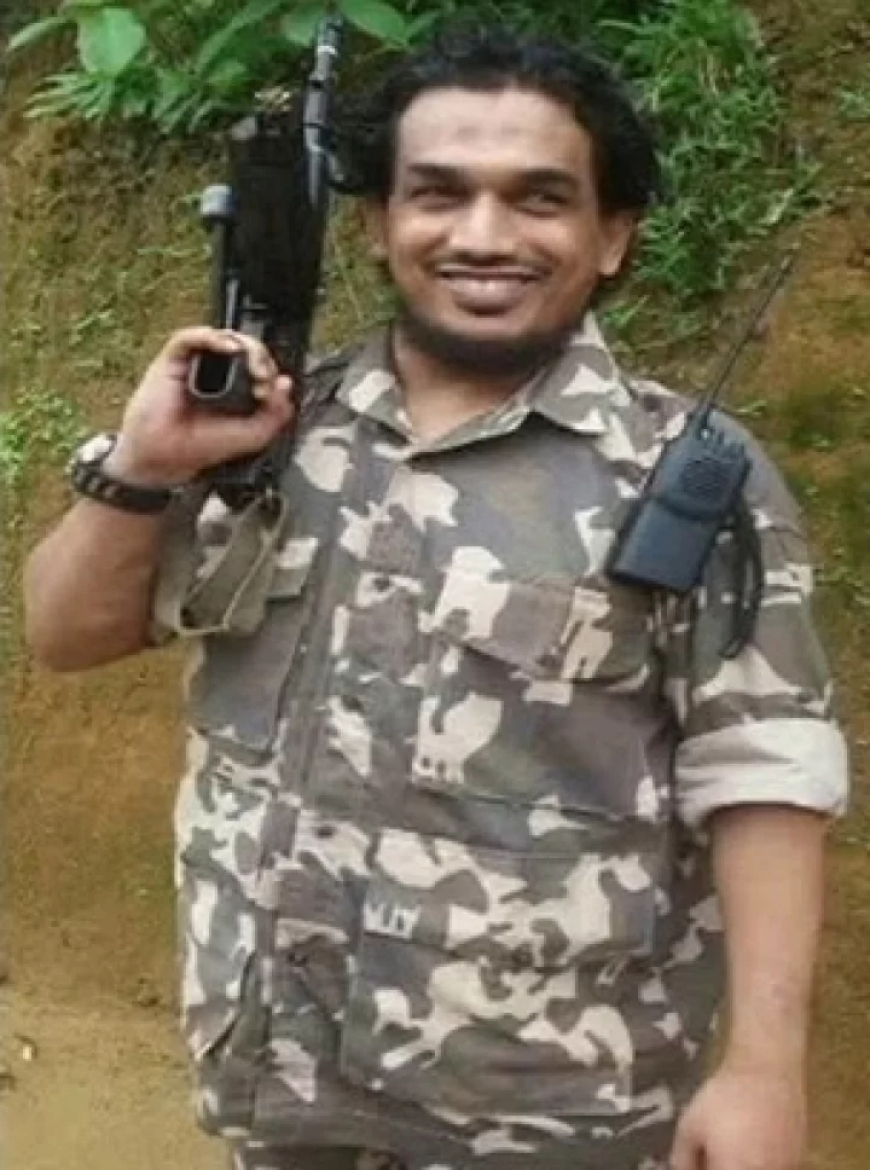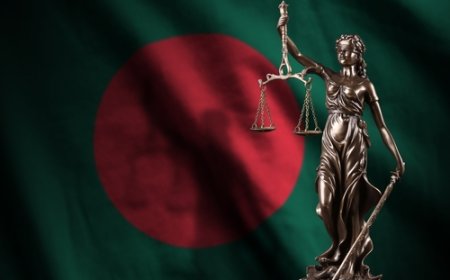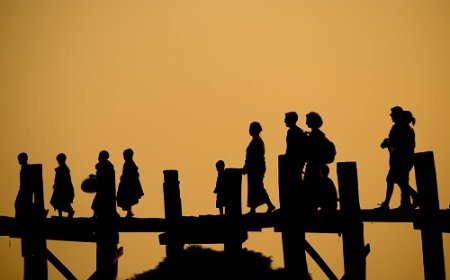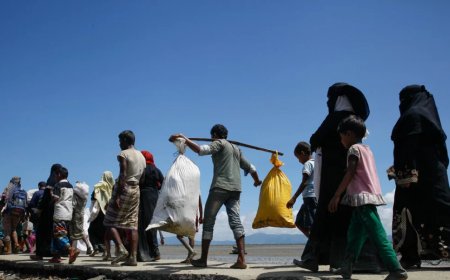Ataullah’s arrest won’t fix the Rohingya crisis
It is merely another performance in a long-running tragedy of control, optics, and missed opportunities for real change

On March 17, Bangladeshi security forces arrested Ataullah Abu Ammar Jununi, the leader of the Arakan Rohingya Salvation Army (ARSA). For some, the news came as a long-overdue blow to an armed group accused of killings, extortion, and turning parts of the refugee camps into no-go zones. For others, the arrest was a calculated move -- less about justice, more about shifting alliances and optics. Either way, it changes very little for the Rohingya refugees trapped in camps under barbed wire and surveillance.
Ataullah has been moving in and out of Bangladesh for years. At the time of his arrest, he was reportedly living in a flat in Narayanganj, allegedly arranged by someone with military links. His group’s presence was long denied by the authorities, even as their activities in the camps were an open secret.
Recently, ARSA became part of the Four Brothers Alliance -- an armed grouping that coalesced with the tacit permission of the authorities and led by another notorious figure, Dil Mohammed. But it would be wrong to say the group was always protected. The state periodically turned on them, branding them a threat, conducting raids, and making arrests when convenient. Pariah or proxy -- they were whatever the moment required.
So why arrest him now?
It is tempting to see Ataullah’s arrest as an act of justice. But if justice was the goal, why not arrest him years ago? Why not after the murder of Mohibullah, the prominent Rohingya activist gunned down in 2021? The answer lies in politics, not principle.
With the Arakan Army (AA) now controlling large parts of Rakhine State, and with Bangladesh quietly engaging with the AA, ARSA has become an inconvenience. According to some Rohingya sources, the AA even demanded Ataullah’s removal as a condition for dialogue. In this version of events, Ataullah wasn’t arrested because of what he did -- but because he got in the way of what others want to do now.
This fits a broader pattern. The Rohingya crisis has never been managed around the rights or welfare of the refugees. It’s been about control, leverage, and image. Ataullah, for years, was a useful villain. He and other armed groups justified the fencing of the camps. He gave the Armed Police Battalion cover to crack down. His existence helped securitise the entire refugee population. But once he lost his utility - once the politics shifted -- he became disposable.
This arrest, then, does not represent a break from the past. It’s a continuation of the same logic: Managing the crisis, not resolving it.
Military and security analyst Major (retd) Emdadul Islam captured the cynicism well: “When a few oppressed individuals take action, they're labelled terrorists. When they grow, they’re called resistance fighters. And when they grow even bigger, they become freedom fighters.” He also pointed out how difficult it will be to convict Ataullah of anything serious beyond illegal entry. Witnesses and evidence are scarce, and the state never showed much interest in pursuing a real case -- until now.
On social and mainstream media in Bangladesh, the reaction has been split. Some see Ataullah as a criminal. Others see him as a scapegoat. Some argue he was part of the very resistance that forced international attention on Myanmar’s atrocities. Others accuse him of sabotaging Rohingya unity and targeting rivals like Mohibullah. But across the spectrum, one question recurs: Why was he allowed to operate for so long, if not with the quiet consent of the state?
Curiously, the UN Secretary-General used his visit to mention the possibility of a humanitarian corridor from Bangladesh to Rakhine to help civilians affected by the civil war. Even more curiously, Bangladesh’s Foreign Adviser, Touhid Hossain -- who has been loudly advocating for a so-called “safe zone” in Rakhine -- claimed that the corridor proposal was never discussed. Then, as if on cue, the Trump administration -- otherwise committed to slashing foreign aid -- unexpectedly stepped in to cover the shortfall in WFP funding, restoring the halved rations for Rohingya refugees.
As long as the Rohingya remain a managed and aid-dependent population, violence, coercion, and armed control will remain embedded in the camp system, regardless of who is in charge
And in the same month, US Army Lt Gen Xavier T Vowell, met with senior military officials to reaffirm the US commitment to “shared security interests” and regional cooperation. These strange alignments raise eyebrows. Could this sudden generosity -- and the high-level military diplomacy -- be linked to the corridor plan and to a broader strategy aimed at curbing China’s growing footprint in Rakhine?
The timing of Fortify Rights’ recent report on violence in the camps, released in Dhaka a day after Ataullah’s arrest, appears to feed into this shifting narrative. The report highlights ARSA’s abuses in the camps, but fails to mention their past ties to Bangladeshi authorities -- ties that helped entrench its power in the camps. This isn’t to discredit Fortify Rights’ valuable documentation -- their work on armed group abuses is crucial. But omitting the role of state complicity flattens the narrative, and risks casting the current crackdown as sudden moral clarity, rather than exposing the long-standing structures of tolerance and control that made such violence possible in the first place.
The inconsistencies don’t end there. The men charged in the killing of Mohibullah were never sent to trial. Instead, some were quietly moved to Bhasan Char after they were turned by the authorities against ARSA. Former ARSA leaders now live alongside ordinary refugees -- some of whom fled to the island precisely to escape them. The victims are now neighbours with their alleged tormentors, and justice, it seems, has been shelved.
This is the problem with how the Rohingya crisis is managed: It’s never about structural change. It’s about optics. Performances. Arrests timed for just after UN visits or major votes at the UN or an appeal for aid. Militants arrested or empowered depending on the season. All the while nearly a million Rohingya remain stuck in camps, with no right to work, no path to citizenship, and no clear future.
Aid continues to flow. Plans like the Joint Response Plan frame “self-reliance” as the goal -- but how can refugees be self-reliant when they’re banned from working? Skills training programmes are announced with fanfare, but lead to no jobs.
Ataullah’s arrest will not be remembered as a turning point for the Rohingya, but rather as a signal that the script has changed for everyone else. His removal is symbolic -- one armed figure taken out of the frame, while another favourite, like Dil Mohammed, a known Myanmar military informant, is repositioned at centre stage. Peace, we’re told, is on the horizon. But this is peace brokered by those who follow the script.
This arrest should not distract from the core issue: the continued warehousing of the Rohingya, the denial of rights, and the refusal to allow work or integrate or protect them. As long as the Rohingya remain a managed and aid-dependent population, violence, coercion, and armed control will remain embedded in the camp system, regardless of who is in charge. Until the deeper conditions change, figures like Ataullah will rise, fall, and be replaced. The crisis is not about the man. It’s about the machinery that made him inevitable.
[Originally published in Dhaka Tribune on April 4, 2025]
What's Your Reaction?













































































